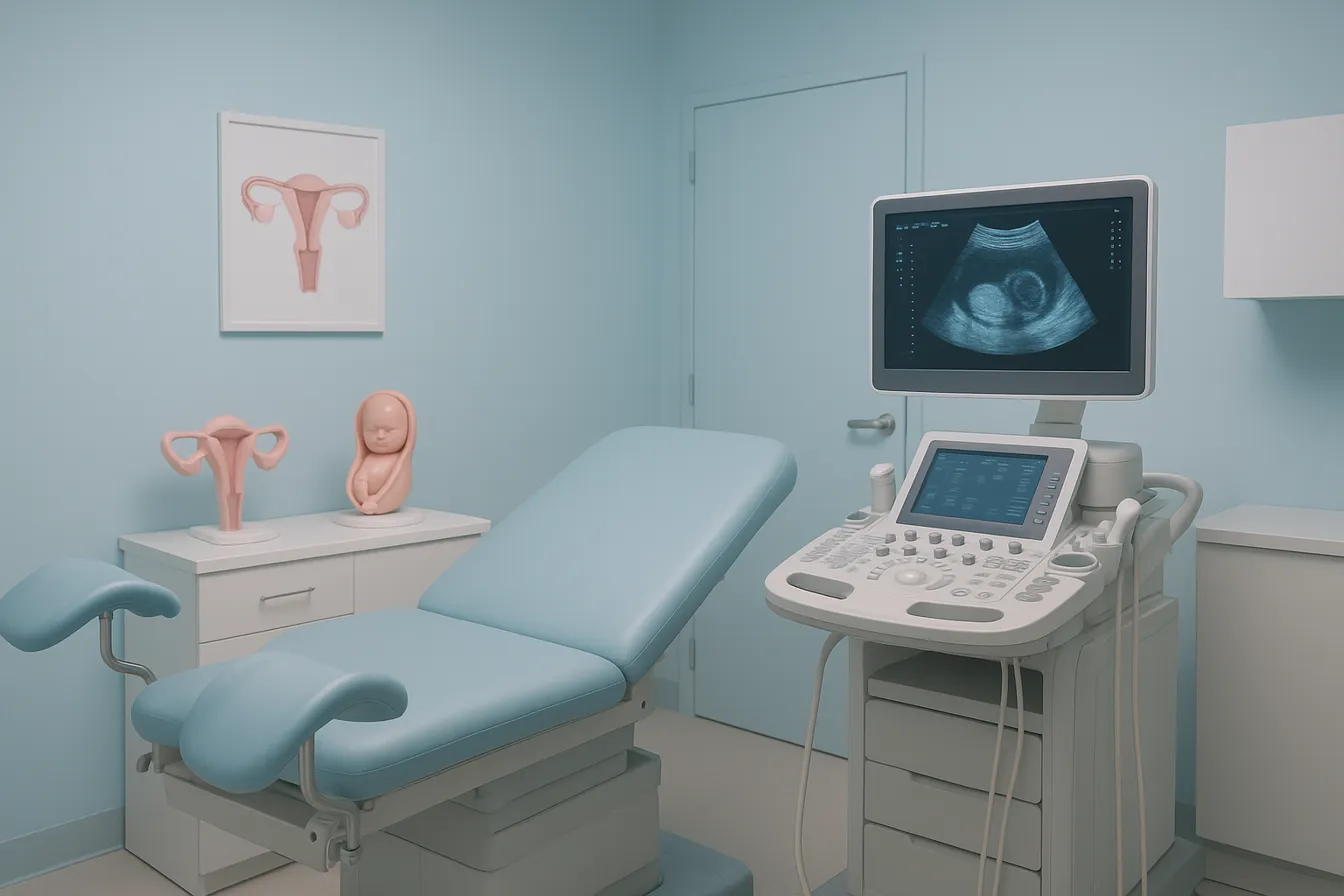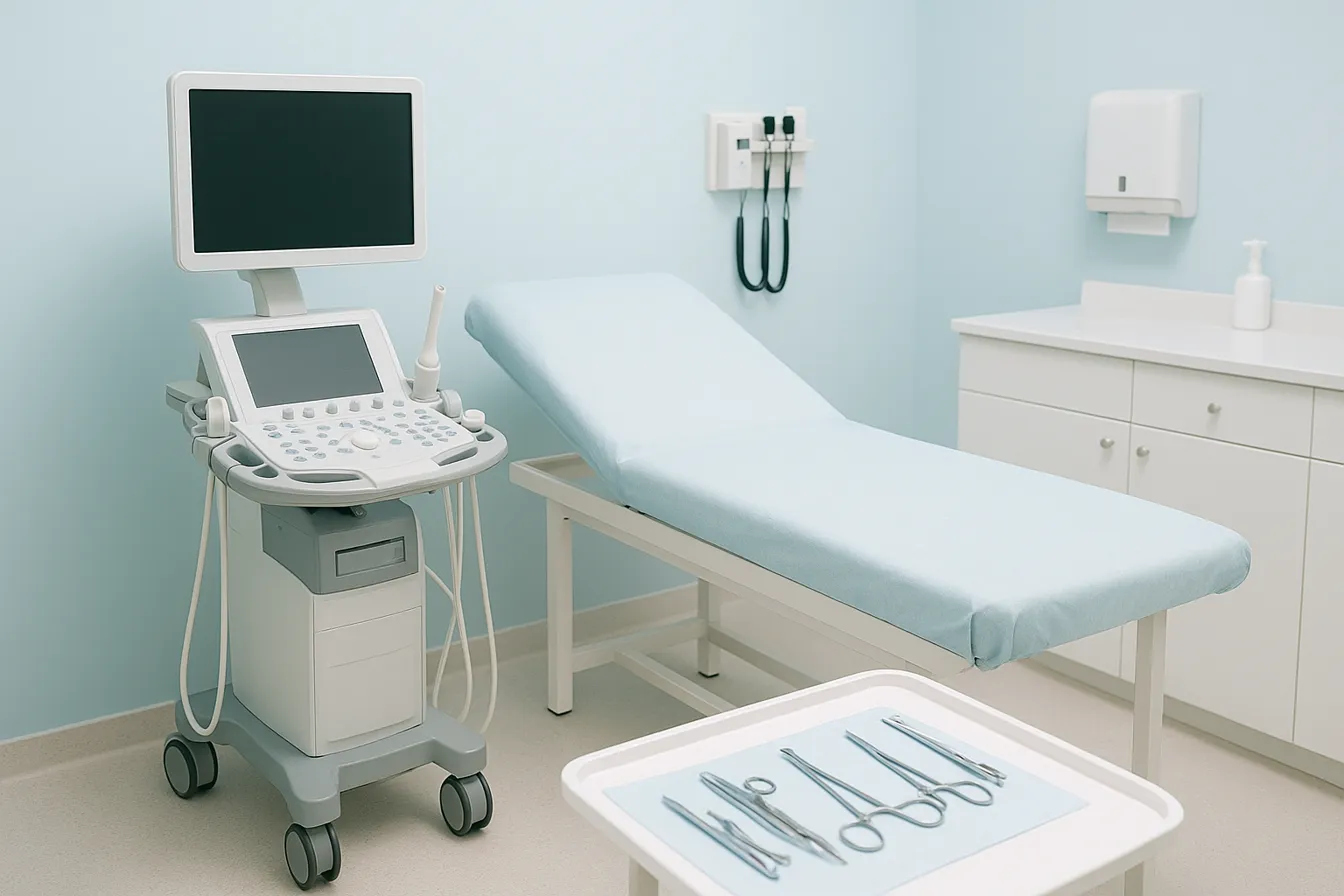Navigating Women's Health: A Comprehensive Guide Across Life Stages

The Importance of Accurate Birth Control Counseling
Understanding the Impact of Myths on Contraceptive Use
Myths and misconceptions about birth control, especially hormonal methods, are widespread and often propagated through social media platforms like TikTok. These inaccuracies contribute to fear, reduced uptake, and premature discontinuation of effective contraceptive methods, negatively affecting reproductive health outcomes. Common myths concern weight gain, infertility, mental health, and menstrual changes, creating barriers that dissuade women from choosing or continuing contraception.
Emphasizing Evidence-Based Counseling
Effective contraceptive counseling must prioritize evidence-based information to counteract misinformation. Healthcare providers should discuss the real benefits and risks of various contraceptive methods, such as the minimal risk of weight gain with most hormonal contraceptives or the reversibility of fertility after discontinuation. Providing clear, personalized guidance empowers patients to make informed and confident choices aligned with their reproductive goals.
The Role of Women-Led Healthcare Providers
Women-led healthcare providers play a critical role in delivering compassionate, patient-centered counseling. Their understanding of women's health nuances and lived experiences fosters trust and open dialogue. By actively listening and validating concerns, these providers can address fears, dispel myths, and support women's autonomy in contraception decisions, ultimately improving acceptance and continuation rates.
Debunking Weight Gain and Physical Side Effects Myths

Do hormonal birth control methods cause significant weight gain?
Most hormonal contraceptive methods and benefits do not cause significant weight gain. Scientific studies show no strong evidence linking these methods to notable weight changes. The exception is Depo-Provera and weight gain (DMPA), an injectable contraceptive, which can lead to modest weight gain typically around 1.4 to 3 kilograms (approximately 2 to 6 pounds). This gain is thought to result mainly from increased appetite rather than the medication directly causing fat accumulation.
Common misconceptions about weight gain
Many people believe birth control and weight gain myths significantly alter body weight, but this is largely a misconception fueled by misinformation about hormonal contraception. Minor weight fluctuations sometimes reported are often due to other factors such as water retention or lifestyle changes rather than the contraceptive itself.
Scientific evidence on Depo-Provera and appetite
Research indicates that Depo-Provera and appetite increase may cause increased appetite in some users, which can contribute to weight gain. However, this side effect is variable and does not occur in all women. Importantly, this weight gain is generally modest and can often be managed with lifestyle adjustments.
Other physical side effects like hair loss
Hair loss as a side effect is uncommon and primarily linked to Depo-Provera and hair loss, affecting a small percentage (about 1-5%) of users. Typically, this hair loss is reversible, and hair regrowth occurs after stopping the medication.
Hormonal similarity to natural hormones and hormonal balance
hormonal birth control hormones vs natural hormones use synthetic versions of natural hormones designed to mimic the body’s own estrogen and progesterone. These carefully formulated hormones usually do not disrupt overall hormonal balance or cause significant mood or physical disturbances. In fact, most hormonal contraceptives maintain a hormonal environment similar to natural cycles, and severe hormonal imbalance effects are rare.
Overall, while some side effects like slight weight gain or hair loss may occur with specific hormonal methods, concerns around dramatic physical changes are largely unfounded. Healthcare counseling on hormonal contraception and education can help women make informed choices and manage expectations.
Clarifying Fertility and Reproductive Health Concerns

Does birth control cause long-term infertility?
No, birth control does not cause long-term infertility. Fertility usually returns quickly after stopping most hormonal contraceptive methods and benefits and intrauterine devices (IUDs). Typically, women can expect to regain their fertility within 6 to 12 months after discontinuing birth control. However, injectable methods like Depo-Provera (DMPA) may delay the return of fertility, often taking around 30 weeks to 10 months before normal fertility resumes.
What is the typical duration for fertility to return after discontinuation?
For most contraceptive methods, including pills, implants, patches, and hormonal IUDs, fertility returns to baseline relatively rapidly—often within a few menstrual cycles. DMPA injections are a notable exception, as they may cause a longer delay in fertility returning due to the nature of the medication.
Why do fears about birth control and fertility persist?
Many misconceptions and myths about birth control's effects on fertility are fueled by misinformation about hormonal contraception, especially on social media platforms. These myths can cause fear and hesitation in using effective contraceptive methods, increasing unintended pregnancy risks. It's crucial for healthcare providers to actively address these concerns through patient-centered contraceptive counseling and evidence-based information.
How does reproductive justice relate to contraceptive counseling?
A reproductive justice framework in contraceptive counseling emphasizes respecting patient autonomy and bodily rights, ensuring counseling is noncoercive and tailored to individual values and preferences. This approach acknowledges historical reproductive mistreatment of marginalized groups and stresses the importance of equity, minimizing bias, and supporting individuals in making informed contraceptive choices that align with their reproductive goals.
Effective counseling that addresses fertility concerns honestly and supports patient autonomy helps empower women to make confident decisions about birth control without fear regarding their future fertility.
Mental Health, Sexuality, and Hormonal Contraception: Separating Fact from Fiction

Does hormonal contraception negatively affect mental health?
Extensive research, including systematic reviews, indicates that hormonal contraceptive methods and benefits like the combined oral pill, progestin-only pills, and vaginal rings do not have a strong association with depression or mood disorders in most users. While some individuals may report mood changes, these symptoms are often influenced by multiple factors beyond contraception and can usually be managed effectively with proper support (Hormonal birth control and mental health).
How do hormonal contraceptives affect sexuality and libido?
The impact of hormonal contraception on sexuality is a complex and highly individualized experience. Some studies report reduced libido or changes in sexual satisfaction, whereas others find neutral or even positive effects. Because responses vary, personalized counseling is essential to address concerns, explore options, and consider alternative methods if sexual side effects arise (impact on sexuality from hormonal contraception).
Can hormonal contraception cause hormonal imbalances leading to "craziness"?
There is no scientific evidence to support the myth that hormonal contraceptives cause hormonal imbalances leading to erratic behavior or "craziness." The synthetic hormones used in contraceptive methods mimic natural hormones and do not disrupt normal hormonal regulation to a degree that would affect mental stability (hormonal contraception myths).
Why is counseling important for mood-related symptoms?
Effective, patient-centered contraceptive counseling plays a vital role in addressing mood symptoms related to hormonal contraception. Healthcare providers should listen empathetically to women's concerns, provide accurate information, and discuss possible mood changes as part of the decision-making process. This supportive approach can help reduce stigma, promote adherence, and facilitate timely management of any side effects (Effective contraceptive counseling).
Safety Profile of Hormonal Contraceptives and Cancer Risks

Do birth control pills increase cancer risk?
Conversely, hormonal contraceptives provide significant protective effects against ovarian and endometrial (uterine) cancers. Studies show that women who use these methods experience a marked reduction in risk for these cancers, benefits that can persist for years after stopping use.
Hormonal contraception also carries a slightly elevated risk of venous thromboembolism (VTE) compared to non-users. Nevertheless, this risk remains lower than the VTE risk during pregnancy or the postpartum period. It is important for healthcare providers to assess individual risk factors when recommending contraceptive methods to ensure safety.
In summary, while hormonal contraceptives have nuanced cancer risks, their protective effects against several cancers and manageable safety profile make them a valuable option in reproductive health. Regular screening and vaccination further enhance their safety.
| Aspect | Risk/Benefit | Details |
|---|---|---|
| Breast Cancer | Slightly increased | Mostly associated with long-term use; risk declines after stopping pills |
| Ovarian and Endometrial Cancer | Protective | Significant and lasting reduction in risk |
| Cervical Cancer | Modest increase | Linked to long-term use; mitigated by HPV vaccination and screening |
| Venous Thromboembolism (VTE) | Slightly elevated | Risk lower than that during pregnancy; important to consider individual risk |
Dispelling Misconceptions on Method Effectiveness and STI Protection

Which birth control methods are most effective?
Long-acting reversible contraceptives (LARCs), including intrauterine devices (IUDs) and implants, rank among the most effective birth control options, with failure rates below 1% when used correctly. Permanent methods such as tubal ligation also offer similar high effectiveness. In contrast, methods requiring user action, like birth control pills and condoms, generally have higher typical-use failure rates due to inconsistent use or incorrect application.
Importance of correct and consistent use
Effectiveness of any birth control method depends heavily on proper and consistent use. Missing pills, incorrect application of condoms, or inconsistent usage of less reliable methods can increase the risk of unintended pregnancy. For example, agencies report that typical use of combined oral contraceptive pills can have about a 7% failure rate, whereas perfect use reduces this to less than 1%. Health professionals emphasize the value of patient education and counseling to ensure users understand how to correctly follow their chosen contraceptive method.
Limitations regarding STI protection
No hormonal birth control method provides protection against sexually transmitted infections (STIs). Only barrier methods such as male and female condoms decrease the risk of contracting or transmitting STIs. Use of condoms alongside other contraceptive methods is recommended for individuals at risk of STIs to ensure dual protection.
Myths about method failures like withdrawal and fertility awareness
Common misconceptions include the belief that withdrawal or fertility awareness methods are highly reliable, but these have significantly higher failure rates. Withdrawal, also known as the pull-out method, has a typical-use failure rate of approximately 22-27%. Fertility awareness methods, which require careful tracking of ovulation markers, range in effectiveness from 77% to 98%, yet remain less reliable due to the complexity of accurate cycle monitoring. Users should be aware of these limitations when selecting contraception and consider more dependable methods if pregnancy prevention is a high priority. For more information see Effectiveness and failure rates of fertility awareness methods and Withdrawal method failure rate.
Embracing Patient-Centered Contraceptive Counseling with a Reproductive Justice Framework
What is the role of patient-centered counseling in contraceptive care?
Patient-centered contraceptive counseling is a compassionate approach that privileges the patient's values, preferences, and unique reproductive goals. It fosters Shared Decision-Making in Contraceptive Care, combining the healthcare provider’s expertise with the patient's lived experience, ensuring that contraceptive choices align with the individual's desires and lifestyle.
Principles of reproductive justice in counseling
A Reproductive Justice Framework in Contraceptive Care grounds contraceptive care in human rights, emphasizing the autonomy to decide whether to have children, not have children, and parent in safe, sustainable communities. This approach actively acknowledges and seeks to rectify the Historical Reproductive Injustices faced by marginalized groups.
Importance of shared decision-making
Shared Decision-Making in Contraceptive Care is the ethical cornerstone of modern contraceptive counseling. It promotes open dialogue, offering unbiased, comprehensive information on all contraceptive methods, side effects, and benefits. This empowers patients to make informed decisions without coercion.
Addressing historical biases and mistrust
Recognizing the legacy of Forced Sterilization and Reproductive Mistreatment, experimentation without consent, and healthcare disparities, especially in communities of color and other vulnerable populations, forms a critical part of counseling. Providers must actively minimize Addressing Counselor Bias in Contraceptive Counseling, building trust and safety in the clinical encounter.
Listening to patient values and preferences
Effective counseling employs Open-Ended Questions in Counseling to explore each patient’s reproductive goals and concerns. This individualized attention enhances satisfaction and continuation, reducing misunderstandings and fears rooted in Misinformation about Hormonal Contraception.
Tailoring counseling to diverse populations
Counseling is adapted to meet the cultural, socioeconomic, and medical needs of diverse patients, including adolescents, LGBTQ+ individuals, persons with disabilities, and those with complex health conditions. Respectful, inclusive care ensures equitable access and optimizes reproductive health outcomes through Supporting Tailored Contraceptive Decisions.
Combating Social Media Misinformation and Enhancing Contraceptive Acceptance
How does misinformation about birth control spread and affect usage?
Social media platforms such as TikTok have become common sources of misinformation about hormonal contraception surrounding hormonal contraceptives. Myths and misconceptions shared on these platforms often fuel fear, mistrust, and confusion among women regarding the safety and effects of birth control. This misinformation can lead many to avoid using hormonal contraception or to discontinue use prematurely, increasing the risk of unintended pregnancies. Since hormonal contraceptive methods and benefits are used by millions worldwide and offer not only pregnancy prevention but additional health benefits, such misinformation poses a significant barrier to informed reproductive health choices.
How can healthcare providers effectively counteract misinformation?
Healthcare providers play a critical role in counterbalancing the myths circulating on social media by offering thorough, compassionate, and evidence-based healthcare counseling on hormonal contraception. Effective strategies include creating a nonjudgmental environment where patients feel heard and their individual concerns are validated. Providers should actively listen to patients' fears and perceived side effects, addressing them directly with current clinical evidence. This includes clarifying misunderstandings about side effects of hormonal contraception, fertility after discontinuing hormonal contraception, hormonal contraception and mental health, and the safety of hormonal methods. Empowering patients with accurate information supports patient autonomy and builds trust.
Strategies to address myths and fears
- Utilize clear, accessible educational materials and visual aids during counseling sessions
- Employ shared decision-making in contraceptive care to align contraceptive choices with patients’ values and lifestyles
- Highlight the reversibility of hormonal contraception and manage expectations about side effects
- Encourage open dialogue about social and peer influences that may shape beliefs (Addressing Counselor Bias in Contraceptive Counseling)
Supporting continuation and adherence through counseling
Maintaining acceptance and adherence to contraceptive methods involves ongoing support beyond the initial counseling. Providers should schedule follow-ups to address emerging concerns or side effects and reinforce correct usage. Counseling that anticipates common birth control myths prepares patients for potential misinformation they might encounter, reducing anxiety and strengthening confidence in their chosen methods. This patient-centered contraceptive counseling approach promotes sustained contraceptive use and overall reproductive well-being.
Empowering Women Through Knowledge and Compassionate Care
The importance of informed, unbiased counseling
Effective contraceptive counseling is essential for empowering women to make informed decisions about their reproductive health. Healthcare providers play a crucial role in offering unbiased, evidence-based information tailored to each woman's values and preferences. This personalized guidance ensures respect for individual autonomy and supports reproductive justice.
Dispelling myths to improve reproductive health outcomes
Misinformation regarding hormonal contraception, perpetuated by social media and misinformation campaigns, often leads to unnecessary fear, decreased uptake, and discontinuation of effective methods. Common myths about weight gain, fertility impairment, mental health effects, and cancer risks are not supported by scientific evidence. Clear communication addressing these misconceptions promotes acceptance and continuation, ultimately enhancing reproductive health outcomes.
Encouraging open dialogue and trust in healthcare settings
Building a trusting, empathetic relationship between patients and clinicians encourages open sharing of concerns and questions. Listening attentively and addressing fears without judgment fosters a supportive environment. This approach not only addresses personal experiences but also helps counter community-wide misinformation, empowering women through compassionate care and shared decision-making.





.png)